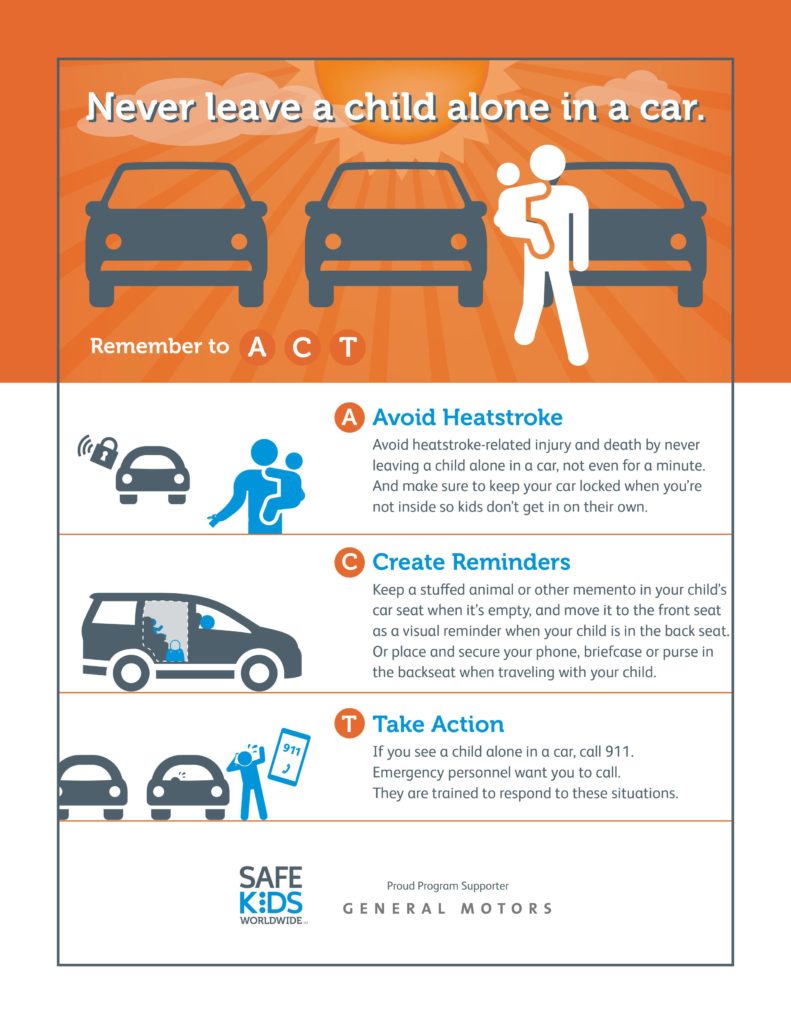Protect children from vehicular heatstroke, death

COLLEGE STATION — Every summer, children get heatstroke or die in hot cars every summer, but a Texas A&M AgriLife Extension Service expert has some tips to help avoid such an injury or tragedy.
Bev Kellner, AgriLife Extension family and community health program manager in College Station, said it’s important to remember that as temperatures increase, so does the likelihood of heatstroke and death for children left in hot vehicles
“Temperatures in parked vehicles rise very quickly, and a child’s body temperature rises three to five times faster than an adult’s, so the combination can be deadly,” Kellner said. “And children are far more vulnerable to heatstroke than adults.”
Kellner said in just 10 minutes, the temperature inside a vehicle can increase by almost 20 degrees.
“Hyperthermia or heat stroke can occur at body temperatures above 104 degrees and even mild exterior temperatures can pose a threat,” she said. “And contrary to popular belief, cracking a window does little or nothing to dispel the heat from the interior of the vehicle.”
Kellner said more than half of these deaths are due to caregivers forgetting they have a child in the vehicle, and these deaths are entirely preventable if a few precautions are taken.
To help avoid child vehicular heat deaths, Kellner said parents and other caregivers should consider the following tips from the Safe Kids organization and AgriLife Extension:
— Never leave infants or children in a parked vehicle, even if the windows are partially open.
— Make a habit of looking in the vehicle — front and back — before locking the door and walking away.
— When parking a multi-passenger vehicle, make sure there are no children sleeping on the seats or hiding under them.
— Put a purse, briefcase, gym bag, cellphone or another item that will be needed in the back seat to help ensure you look there before leaving the vehicle.
— Set the alarm on your cellphone or computer calendar as a reminder to verify you have not left a child unattended in your vehicle.
— If you see an unattended child in a vehicle, dial 911 immediately and follow any instructions provided by emergency personnel.
On children getting into parked vehicles:
— Teach children not to play in and around vehicles.
— Always lock vehicles, even when in the garage or driveway.
— Never leave keys in the car and store them out of children’s reach.
— Identify and use safe play areas for children away from parked or moving vehicles.
“Also, if a caregiver notices a child is missing, it’s always a good idea to make your vehicle one of the first places to look, including the trunk or storage area,” Kellner said.
She also noted other ways to help avoid children being accidentally locked in hot vehicles are to use drive-thru services when available and to pay for gas at the pump with a debit or credit card instead of going inside.
“We hope if people use these preventive measures we can avoid further needless child vehicular heat deaths,” Kellner said.
Writer: Paul Schattenberg, 210-859-5752, [email protected]
Contact: Bev Kellner, 979-862-1782, [email protected]


